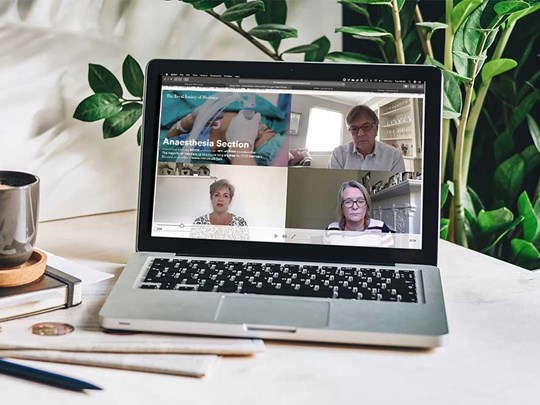
Watch your next webinar for free as an RSM member
RSM members have free access to over 100 hours of educational webinars each year.

Join us for this educative webinar which will provide participants with an overview of paediatric trauma guidelines and relevant case studies. The meeting will consist of distinctive talks by experts including specialists from the Paediatric Intensive Care Unit (PICU) and paediatric anaesthesia who will give insight into some of the differences and pitfalls that may be encountered. Additionally, a series of interesting case studies will be presented where participants will have the opportunity to engage in a thought-provoking discussion and debate.
The talks that will be covered will provide an introduction into the basic underlying principles of paediatric trauma care. Covering, the anatomical and physiological differences between infants, children and adults. There will be a special focus on head injury and traumatic brain injury which accounts for nearly 75% of all paediatric deaths due to trauma. This will include discussions on end of life care, providing some background to the nuances of these potentially challenging conversations. Traumatic cardiac arrest will also be covered, enabling discussion on human factors and leadership approaches to the multidisciplinary team.
By attending the webinar, you will enhance your knowledge on:
Follow us on:
Dr Elaine Yip, Intensive Care & Anaesthetic Registrar, Birmingham Heartlands Hospital
Dr Richard Neal, Paediatric Intensive Care Unit Consultant, Birmingham Children's Hospital
Karl Thies, Consultant in Anaesthesia and Critical Care, Bielefeld University Hospital
Dr. Qasim Malik, Paediatric Registrar, Birmingham Children's Hospital
Online
Registration for this webinar will close 1 hour prior to the start time. You will receive the webinar link 1 hour before the meeting. Late registrations will not be accepted.
Webinar recordings will be available for registered delegates up to 60 days after the live webinar, via Zoom. The link will be sent 24 hours after the webinar takes place.
This webinar will be recorded and stored by the Royal Society of Medicine and may be distributed in future on various internet channels.